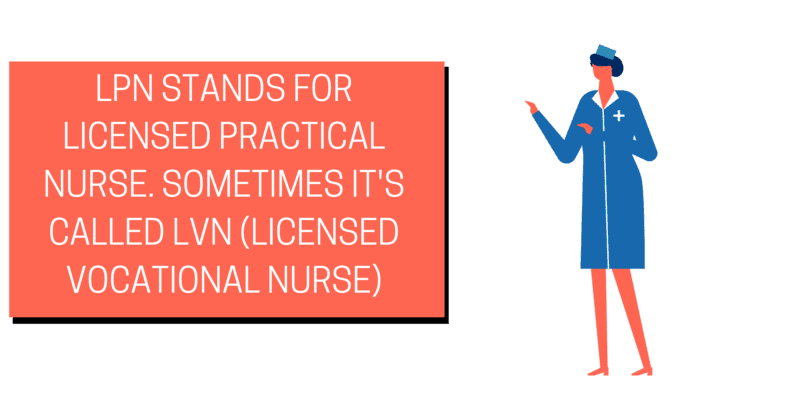If you’ve decided to begin or continue a career in nursing, congratulations! Nursing is one of the most mutually beneficial and demanded jobs in the world today. Nurses are instrumental to patient care, including their mental and physical well-being.

At Best Health Degrees, we try to take some of the weight off your shoulders as you plan your best course of action in medicine. That might include earning a degree, a certification, or deciding what occupation you want in the field, and how to qualify for it.
Nursing isn’t glamorous. It requires long hours of intense, difficult work. You’ll often be dealing with patients who are dealing with serious medical problems. Through little sleep and despite grinding labor, you’ll need to do whatever you can to assist them and create positive outcomes for both your patients and the organizations you work with. You’ll cultivate versatile skills and consistently add new dimensions and responsibilities to your work.
Nurses often earn new degrees, certifications, and licenses throughout their careers. Careers in medicine are about evolving your education, duties, and positions you qualify for. The idea that being a nurse is more relaxed than working as a doctor is a significant misconception. While the roles are different, it’s impossible to compare them in terms of difficulty. Often nurses work just as hard as doctors, and their ongoing education can be comparably demanding, especially as nurses earn upper-level certifications and licenses.

Nursing traces its history back to 300 AD and the Roman Empire. As the Empire controlled an ever broader swath of territories, it worked to put hospitals in all the municipalities under its control. This effort required a considerable population of nurses. Throughout the Middle Ages, and after the Industrial Revolution, this demand for nurses grew unabated. Today there are millions of working nurses in America alone, and the field is expected to add hundreds of thousands of roles by 2028.
By earning a degree or certification in nursing, you can be a part of this growing field, make a significant difference in many patient’s lives, and secure yourself a steady career that can support yourself and your family.
In this guide we’re going to discuss and explore a specific role in nursing: Licensed Practical Nursing, which is also known as Licensed Vocational Nurses in some jurisdictions (like in Texas and California). For the purposes of this guide we’ll refer to them as LPNs from herein, but in your research, if you see LVN, know that the terms are mostly interchangeable.
Let’s look at the basics of these roles:
What is an LPN?
LPNs are trained medical workers that help RNs (registered nurses), and doctors give patients proper healthcare. LPNs work in a variety of medical institutions, including insurance companies, clinics, outpatient facilities, hospitals, private practices, rehabilitation centers, or anywhere else nurses are employed. The majority of LPNs work in nursing homes, according to LicensedPracticalNurses.net. In the totem pole of nursing experience, prestige, and job opportunities, LPNs are considered a step between certified nursing assistants (CNAs) and RNs.

In 2018 there were nearly 730,000 people working as LPNs in America.
What Do LPNs Do?
Under the direction of RNs and doctors, some of the duties LPNs fulfill include:
- Measuring and monitoring blood pressure, among other vital signs
- Talking to families about the status of patients, and providing instructions and advice about aftercare
- Talking to patients about their condition, and discussing the care patients are receiving
- Actively providing basic medical care, including, but not limited to applying bandages, inserting catheters, among other responsibilities
- Assisting in other forms of care, including tests and medical procedures conducted by more experienced and credentialed medical professionals
- Giving patients emotional care and companionship during what can be lonely, trying times
- Charting and documenting patient health care records, using current medical software
- Offering basic life needs care, like bathing patients and feeding them
- Reporting their concerns about patients to other nurses and physicians
- Adhering to state laws and regulations that govern medical practices
Of course, as an LPN, or as any nurse, you can be called upon to do other tasks, within reason. You need to be able to handle patients with visible injuries, emotional problems, have no fear about bodily functions, and in general, a tough but upbeat demeanor. Nurses also can be expected to clean rooms. Nurses need to be strong too. They can be asked to lift, maneuver, or otherwise assist patients physically. You’ll frequently be on your feet, and can expect to walk about four to five miles during each 12-hour shift you work as a nurse.
If you find this daunting, it is. However, so are most things until you do them. If you’re determined to make it as a nurse, you will.
With that in mind, let’s explore how people become LPNs:
How Do You Become an LPN?
To become an LPN, you’ll need to complete an approved LPN program and a certification exam. States approve LPN programs by criteria they determine. For the most part, states offer reciprocity (meaning a license earned in one state could be used in another) for LPN licenses, although not always. The process to receive reciprocity isn’t automatic.
What are the Available LPN Diploma, Certification, or Degree Programs?
LPN training is generally offered in certification or diploma programs, but can also be completed in associate degrees. These programs are often completed in a year, but accelerated programs can take students through them in as little as nine months. LPN programs can be attended in hospitals, junior colleges, technical schools, community colleges, and from other providers.
The programs are made up of coursework and supervised practical nursing care work. Keep in mind that different states decide the rules that govern these programs. You can research the various requirements in your state, but also expect some overlap between state expectations in LPN training.
To qualify for an LPN program you’ll likely need a high school diploma or equivalent.
So how do you decide whether to complete a certification, diploma program, or an associate degree? We’ll explore questions and considerations soon, but for now, consider whether you want to become an RN or reach a higher position in nursing than working as an LPN. If you opt for a certification or diploma program, you’ll likely be able to get certified as an LPN quicker than in an associate program. The tradeoff is the education you receive in a certification or diploma program probably won’t be transferrable. However, if you complete an associate program, you’ll probably be able to use your credits in a more extended program, like completing a Bachelor’s degree needed for RN certification.
What Do You Study in LPN Programs?
Here’s some of the courses you can expect to study in an LPN program:
- Nutrition
- Psychology
- Human growth and development
- Nursing care of children and adults
- Medical terminology
- Anatomy
- Physiology
- Practical Nursing 1
- Advanced Nursing
- Among others
You may be able to get a leg up on a nursing degree by taking some prerequisites in chemistry, biology, mathematics, psychology, and English, depending on the requirements in a prospective program. You might also need to pass an entrance exam to get into an LPN program. Check your state’s criteria and the demands of specific programs before applying.
After completing your coursework and supervised clinical work, you’ll need to take and pass the National Council Licensure Examination for Practical Nurses (NCLEX-PN). All states and D.C. require this exam. The NCLEX is offered through The National Council of State Boards of Nursing. It’s a computerized test with between 85 and 205 different questions. It must be finished within 5 hours. The test oversees your progress as you complete it, and changes its difficulty and the subject matter within it as you go, depending on your aptitude. If you fail the test, you’ll have to wait between 45-90 days before you can retake it. It’s multiple-choice and has questions in the following areas:
- Physiological Integrity
- Health Promotion and Maintenance
- Safe and Effective Care Environments
- Psychosocial Integrity
Once you’ve completed these steps you can apply for licensure in your state and become an LPN.
Before we move on, you might consider supplementing your LPN licensure by gaining certification in a specific skill set that separates you from the average LPN. You’ll complete additional training and/or development courses to do so. Some of the areas you can receive a certification in to enhance your LPN licensure include:
- Long-term care
- IV therapy
- Dialysis
- Neonatal Education
- Hospice and Palliative Care
- Pharmacology
- Gerontology
- Immunization
- Among others
Now let’s move on to the decision-making process when considering becoming an LPN, and specific programs to help you do so:
Ask Yourself and Consider the Following About Your LPN Education and Career
- Are you qualified to begin a specific LPN program?
- By talking to someone who works for an LPN education provider you can find out whether you’re ready to start one, how to help yourself get accepted into one, and what you can do to be more successful within one.
- What are your career goals? Do you want to become an LPN? Do you want to reach other certifications and licensures in your nursing career?
- What is your current career and educational experience in medicine?
- Have you earned an associate or bachelor degree?
- What you’ve done in your career, what degrees you’ve earned, along with your goals, can help decide the best pathway in nursing for you. Remember, there are faster ways to get an LPN certification and longer ones. The quicker ones will put you to work sooner, but a longer degree route can set you up to continue your education and reach higher nursing titles, positions, and earnings.
- No matter what path you select, you’ll have opportunities to enhance your nursing education, experience, and credentials. However, if you know you want to use an LPN education as a springboard to other nursing roles, you should probably get an LPN degree instead of a certificate or diploma.
- Make sure any LPN program you’re considering has been approved by your state.
- Do you want to specialize in a specific area of nursing? If so, consider programs or institutions that allow you to do so. Your options include immunization, pharmacology, IV therapy, among many others.
- How will a specific LPN program help you reach your eventual nursing goals?
- It’s OK if you don’t know precisely what you’d do in nursing. Starting a program and completing it will open your eyes to many of the realities and opportunities in the field.
- How much time can you commit to an LPN program daily, weekly, and overall before you complete it?
- Different programs have unique schedules, timelines, etc. Finding a program that works with your current work schedule and allows you to meet your ongoing responsibilities will set you up for success in your pursuit of LPN certification.
- Would you like to study online?
- LPN programs will always involve significant in-person study and clinical experience. However, you may be able to complete some coursework online, saving you some travel time, and perhaps some money as well.
- Where do you want to live and work as an LPN? Some areas have a greater demand for LPNs. Some pay LPNs more on average. By studying where you want to live and work you can improve your chances of landing a coveted role in nursing.
These are just a sample of the questions and considerations that should animate your decision-making process on finding an institution conveying LPN degrees, certifications, or diplomas. Writing out answers to these questions can help you decide where to apply and attend an LPN program.
Now let’s explore how we can help you find your place in nursing:
How Can We Help You In Your Nursing Education and Career?
Here at Best Health Degrees, we’re committed to giving aspiring nurses and medical professionals a library of resources to help them in their education and career. We’re continually updating our content and organize it under different umbrellas for your convenience. We’ve ranked degree programs, including online and on-campus offerings. We’ve created resources to guide you as you decide what you want to do in medicine. There’s a fantastic variety of roles in the field that can be reached after earning specific degrees, certifications, and other credentials. We’re here to help you see how education and training lead to careers, responsibilities, and earning potentials. Best Health Degrees is also dedicated to answering common questions about these roles, the differences between them, and other considerations.
If you find any organization through our content that you’re interested in studying and training under, please reach out to their support staff directly. They’ll be able to answer pressing questions you may have, help work out issues specific to you, and generally enhance your chances of acceptance and continued success as you complete their modules and training. You should also read reviews from former students or trainees, and make sure they comply with local and national standards and accreditations.
Here’s some of what we’ve created to assist you:
RANKINGS
- 25 Best Master’s in Healthcare Administration
- 15 Best Online Master’s in Healthcare Administration
- 15 Best Online MSN Degree Programs
- 25 Online Master’s in Nursing and Healthcare Informatics
- 15 Best Master’s in Nursing and Healthcare Informatics
- 15 Best Online BSN Degree Programs
- 25 Best Traditional BSN Degree Programs
RESOURCES
- What Can I Do with a Bachelor’s in Nursing?
- What Can I Do with a Master’s of Science in Nursing?
- What Can I Do with a Master’s in Health Informatics?
- What Can I Do with a Master’s in Healthcare Administration?
COMMON QUESTIONS
- What is an LPN?
- How Do You Become an LPN?
- What is the Difference Between a CNA and an LPN?
- Can You Get a Degree in Nursing Online?
- What is a Long-Term Care Nurse?
- What is a Hospice Nurse?
- Is An Associate’s Degree in Healthcare Worth It?
- What Does a Gerontology Nurse Do?
- What Types of Nursing Degrees Can I Get?
Please peruse the rest of our content, and come back to find frequent updates.
Here’s some information about earnings and employment statistics for LPNS:
What Can You Expect to Earn as an LPN? What’s the LPN Employment Landscape Like?
LPNs are at the lower end of the nursing hierarchy in terms of earnings, responsibilities, and prestige. They’re above CNAs, but below RNs. Fortunately, training and working as an LPN can pay significantly more than the average American salary. There’s also significant room for advancement in nursing, and even within LPN employment, depending on what supplementary training and certifications you complete. Working as an LPN will introduce you to many nurses and medical professionals that can help determine where your career goes, and what you’ll do to enhance it.
Here’s some information about nursing employment, from the findings of the United States Bureau of Labor Statistics:
- In 2018, nurses earned a median wage of $71,730 each year, or $34.48 per hour.
- In 2018 there were 3,059,800 working nurses.
- Nursing employment was expected to jump by 12% between 2018-28. This would create 371,500 new roles in the field.
BLS also has information about LPNs:
- In 2018, LPNS had a median pay of $46,240 annually, or $22.23 per hour.
- There were 728,900 people working in these roles in 2018.
- BLS predicts these roles will increase by 11% between 2018-28, creating 78,100 new jobs.
- As of May 2018, the bottom 10 percentile of LPNs made approximately $33,680 annually, while the the top 10 percentile made approximately $62,160 each year.
Areas associated with higher LPN pay include the following:
- Working in Government: May 2018 median annual wage of $48,050
- Working at Nursing and residential care facilities: May 2018 median annual wage of $47,470
- Working in Home healthcare servicesL May 2018 median annual wage of $46,510
The highest levels of employment for LPNs were found in the following industries in May 2018:
- Nursing Care Facilities (Skilled Nursing Facilities): 210,850 positions. Hourly mean wage of $23.24, or $48,330 annually.
- Offices of Physicians: 90,830 jobs. Hourly mean wage of $20,79, or $43,240 a year.
- General Medical and Surgical Hospitals: 89,670 roles. Hourly mean wage of $21.73, or $45,190 a year.
- Home Health Care Services: 89,530 positions. Hourly mean wage of $23,02, or $47,880 annually.
- Continued Care Retirement Communities and Assisted Living Facilities for the Elderly: 51,370 roles. Hourly mean wage of $23.01, or $47,850 a year.
Top paying industries (as of May 2018) for LPNs are:
- Junior Colleges: Annual mean wage of $62,050
- Agencies, Brokerages, and Other Insurance Related Activities: $55,180
- Insurance Carriers: $54,780
- Other Amusement and Recreation Industries: $53,510
- Community Food and Housing, and Emergency and Other Relief Services: $51,970
The states with the highest level of employment for LPNs are:
- Texas: 72,030 jobs
- California: 64,000 positions
- Florida: 47,540 roles
- New York: 46,500 LPNs
- Ohio: 40,590 jobs
Top paying states (as of May 2018) for LPNs are as follows:
- Rhode Island: Annual mean wage of $59,130
- Massachusetts: Annual mean wage of $58,990
- Alaska: Annual mean wage of $58,250
- Nevada: Annual mean wage of $57,140
- Connecticut: Annual mean wage of $56,970
We hope you’ve found this guide illuminating, informative, and instructive. We hope you find fulfillment and success in your nursing career and education.